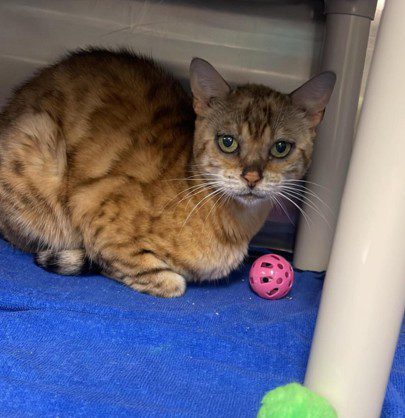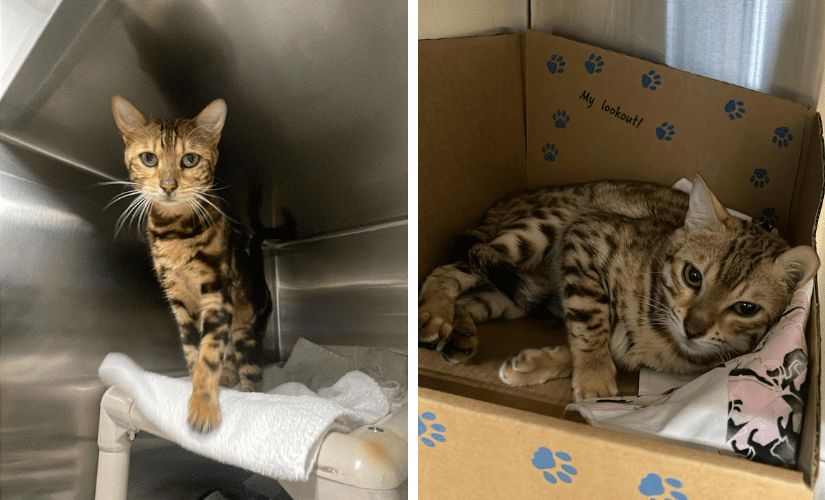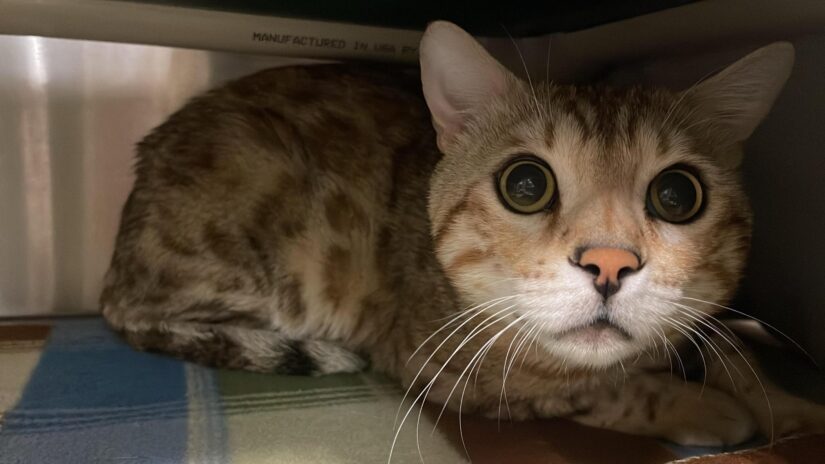BC SPCA animal protection officers seized 34 Bengal cats from a property in Vernon on May 28, 2025, after a veterinarian determined all the cats met the definition of being in distress.
“We were alerted to this situation by someone who visited the property. They were considering buying a cat from the breeder and were concerned about the conditions the cats were living in. They contacted the animal helpline and an investigation was initiated,” says Eileen Drever, senior officer protection and stakeholder relations.
“This is yet another situation where someone is breeding animals in conditions that do not support their physical or mental wellbeing,” says Drever. “The officers who visited the property reported an overwhelming smell of ammonia in the rooms where these cats were housed, so intense their own noses were stinging. An ammonia gas test registered at the highest level, further proving that the ventilation and cleaning were insufficient.”

Drever emphasizes the dangers of ammonia exposure for animals, explaining that the exceptionally high levels detected on this property pose serious health risks. “These concentrations can lead to severe respiratory irritation and, in extreme cases, even ulceration of the eyes.”
In addition to the high levels of ammonia gas, the cats were kept in dirty cages with overflowing litter boxes. In some cases, there were also too many cats housed in one cage. “Bengal cats are typically larger than domestic cats,” says Drever. “Although they had access to a ‘catio,’ it was on a limited basis. Some of these cats spent most of their time in cages.”

“Most of the cats are fearful, but they were very brave during their intake exams,” says Shannon Paille, manager of the BC SPCA Kelowna animal centre. “We were able to get all the treatments done with light towel wraps and only some of them were growly. Bengals can be quite vocal.”
Paille says the veterinarian who examined the cats reported that almost all are underweight and some of the cats had diarrhea. “We have already been giving the cats regular treatments for skin issues but, because of some suspicious hair loss, they are also being tested for ringworm.” It appears that all the cats will need spay or neuter surgeries.
Caring for these cats requires a different approach. “Bengals can be very expressive cats,” says Paille. “They’re intelligent and energetic, so depending on the individual cat, they may require more stimulation and enrichment than other breeds.”

Bengal cats are wild-hybrid domestic cats, a mix of wild Asian leopard cats and domestic breeds. Hybrids already living in our communities, like those involved in this animal protection case, require highly specialized care. To ensure strong welfare for these animals, the breeding of hybrid cats should be regulated. The BC SPCA opposes the breeding of wild animals with domestic animals, as well as the breeding of wild animals in captivity as exotic pets. The importation, breeding, and keeping of exotic animals—such as Asian leopard cats and Servals, which are used to create hybrid cats—should be prohibited under the provincial Controlled Alien Species Regulation of the Wildlife Act.
At this time, it is unknown when the Bengal cats will be available for adoption.
